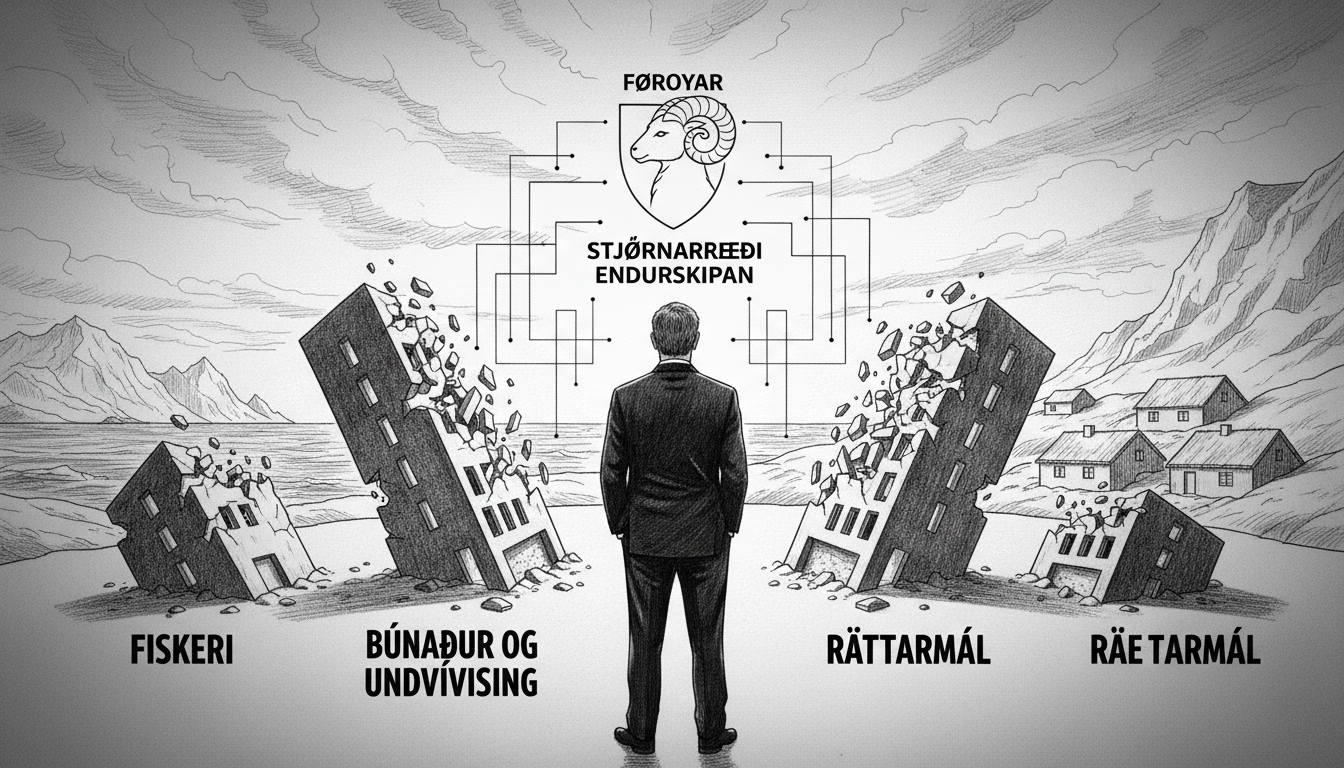The Faroe Islands government is moving forward with a major administrative overhaul. Prime Minister Aksel V. Johannesen intends to eliminate three of the country's nine ministries. This decision follows recommendations from a government reform committee.
The committee proposed reducing the number of ministries from nine to six. They believe this change will create a more efficient central administration. The plan targets three specific ministries for elimination.
The Fisheries and Infrastructure Ministry will be dissolved. So will the Children and Education Ministry. The Justice Ministry will also cease to exist. These changes mean three ministers will lose their positions by December 1.
Jóhan Christiansen currently leads the Fisheries and Infrastructure Ministry. Djóni Nolsøe Joensen heads the Children and Education Ministry. Bjarni Kárason Petersen serves as Justice Minister. All three will depart from their roles when the restructuring takes effect.
This reorganization represents one of the most significant changes to Faroese government structure in recent years. The Faroe Islands operate as a self-governing territory within the Kingdom of Denmark. They maintain control over most domestic affairs while Denmark handles foreign policy and defense.
The remaining government structure will include the Prime Minister's Office. It will also contain the Finance Ministry, Business Ministry, Social and Health Ministry, Education and Culture Ministry, and Foreign and Environment Ministry. This streamlined approach aims to reduce bureaucratic overlap.
Small island nations often face unique governance challenges. The Faroe Islands have approximately 53,000 residents spread across 18 islands. Maintaining nine separate ministries creates substantial administrative costs for a population of this size.
Similar government streamlining has occurred in other Nordic regions. Iceland reduced its ministries following the 2008 financial crisis. Greenland has also periodically restructured its administration to improve efficiency.
The timing of this announcement suggests the government wants changes implemented before year-end. December 1 provides a clear timeline for ministerial transitions. It also allows for budget adjustments in the new year.
Government restructuring often faces political hurdles. The success of this plan will depend on parliamentary support. The Faroese Parliament, known as the Løgting, must approve these ministerial changes.
This move reflects broader trends in Nordic public administration. Many regional governments are seeking ways to deliver services more effectively. They aim to maintain quality while controlling costs.
The elimination of three ministries will require careful redistribution of responsibilities. Remaining ministries will likely absorb the functions of dissolved departments. This could lead to internal restructuring within surviving ministries.
Government employees in affected ministries may face reassignment or redundancy. The human resources impact remains unclear. The government has not yet detailed employment consequences for civil servants.
International observers will watch this reorganization closely. The Faroe Islands have gained attention for their successful management of fisheries and renewable energy. Their governance approaches often interest other small nations.
This restructuring could influence how other autonomous territories approach administration. It may provide a model for balancing comprehensive governance with fiscal responsibility.
The coming months will reveal how smoothly this transition proceeds. December 1 marks a significant turning point in Faroese government structure. The success of this consolidation will be measured by improved efficiency and maintained service quality.

